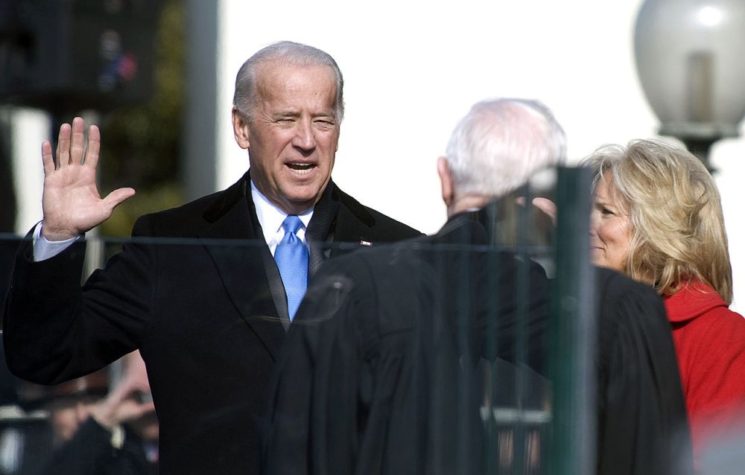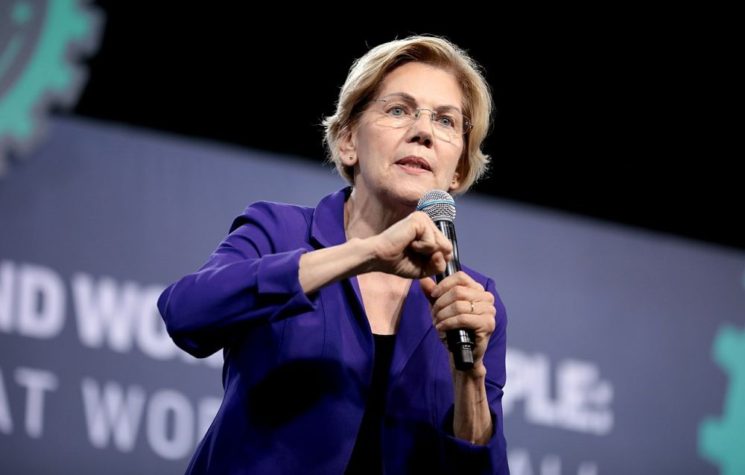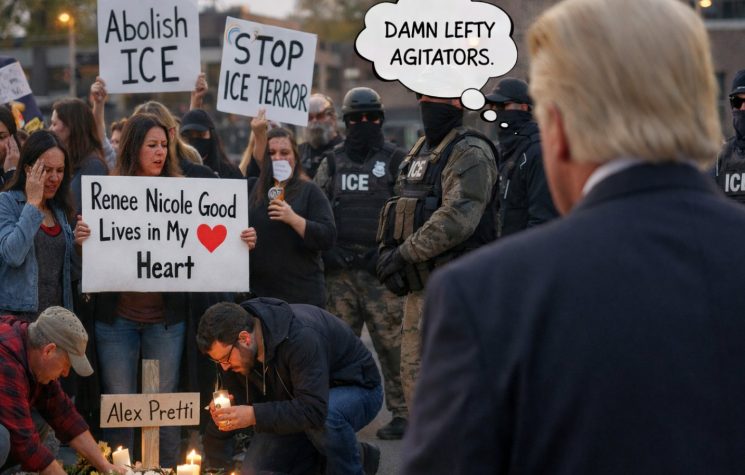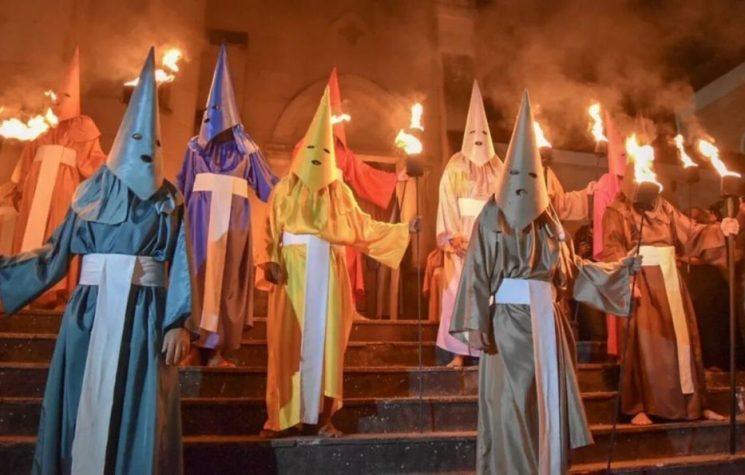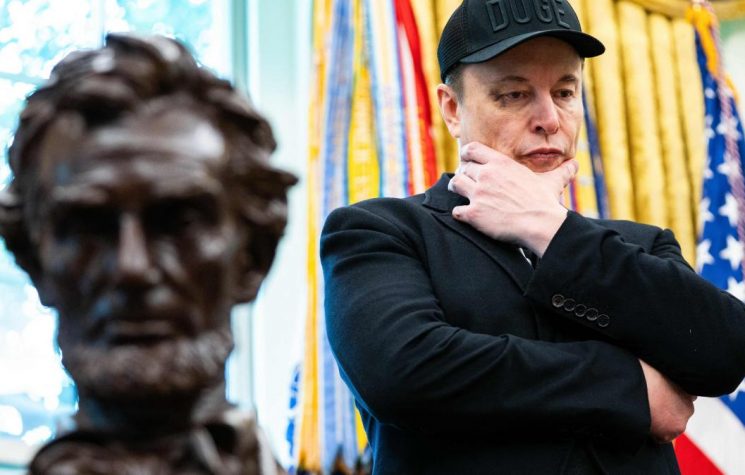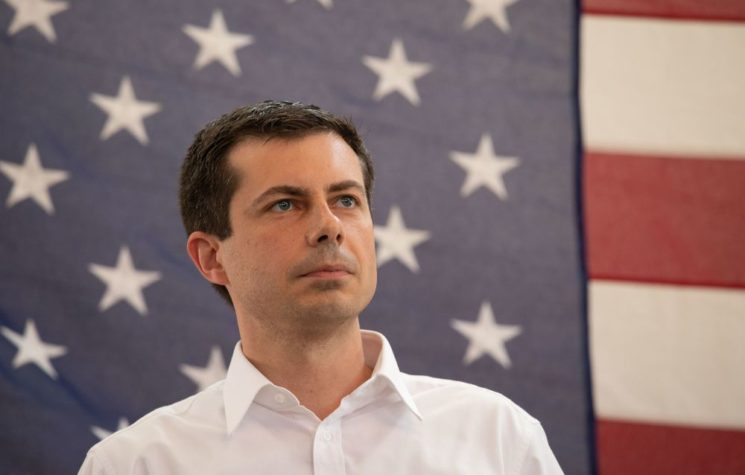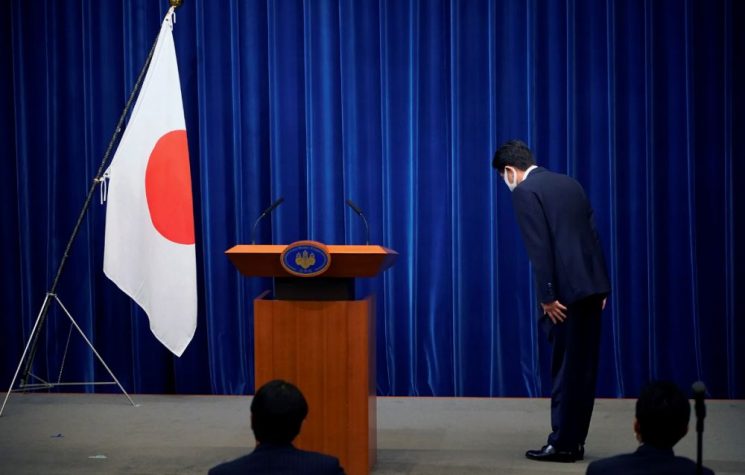Rhodes Scholar. Afghan vet. Mayor. An impressive resume, to be sure, but to have made the fantastic leap from local politics to the doorstep of the Oval Office – at the age of just 38 – seems altogether impossible without some serious behind-the-scenes connections.
Let’s just cut right to the chase with a couple questions that the media has glaringly failed to consider about the top-polling Democratic presidential candidate. First, the most obvious one. How on earth does a young Midwestern mayor, regardless of his polished resume, jump to the front of the serving line, past hundreds of veteran politicians who have quietly nurtured presidential ambitions inside of the Beltway their entire lives?
As The Economist emphatically stated this week, “Mr Buttigieg is ridiculously young to be doing so well.”
Second, if the mayor of South Bend, Indiana (pop. 101,166) is now in serious contention to challenge Donald Trump in November, what exactly does that say about the depth of the Democratic bench, loaded as it is with Senators, House members, Governors and various state officials with far more political experience and acumen?
Today, LGBTQ+ youth in America aren’t just grappling with a crisis of belonging in their communities, many are left without a home or a place to sleep. I am so proud of @PeteButtigieg‘s agenda for housing justice and what it means for vulnerable youth. https://t.co/btn2zKDrXd
— Chasten Buttigieg (@Chas10Buttigieg) February 17, 2020
While the Oval Office has seen its share of pretenders, and even actors, the great majority of those men who made it to the pinnacle of power have spent at least some time in high political office before contemplating a presidential run. Incidentally, it is on this particular point, political experience, which could make a Trump-Buttigieg debate a very interesting spectacle. Although Buttigieg has limited political experience, Trump had none before he entered the White House, although certainly proving his abilities once in office.
For Pete’s sake!
Born on January 19, 1982, Buttigieg graduated valedictorian from St. Joseph High School in 2000. That same year he won a JFK ‘Profiles in Courage’ essay contest on the subject of none other than Bernie Sanders, the democratic socialist the incredibly rising mayor is competing against for the November nod. “Above all, I commend Bernie Sanders for giving me an answer to those who say American young people see politics as a cesspool of corruption, beyond redemption,” Buttigieg wrote. His trip to Washington D.C. to collect his prize included a meeting with members of the Kennedy clan, an honor that must have left a deep impression on the 18 year old.
Upon graduation from Harvard University, Buttigieg did a stint (2007-2010) at the Chicago office of McKinsey & Co, the discreet U.S. management consulting firm. During his time there, the young upstart took a trip to perhaps the most unlikely destinations in the world, Somaliland, a self-proclaimed independent state in Africa that is struggling for international recognition to this day. In other words, not a trip to Disneyland.
Just before embarking on his African adventure (Summer of 2008), Buttigieg was taken on as a fellow with the Truman National Security Project, a neoliberal think tank that has been described as “a powerful and exclusive club for the best and brightest young progressives in the country.” Among its esteemed alumni is none other than Madeleine Albright, chief architect of NATO’s obliteration of Yugoslavia. Meanwhile, the founder of the Truman Project, Rachel Kleinfeld, deserves some consideration.
Upon graduating from Oxford, Kleinfeld took up employment with Booz Allen Hamilton, the private contractor that carried out a long list of services for the military. It has also been described as “the world’s most profitable spy organization.” The head of the company at the time was none other than James Woolsey, the neoconservative former CIA director who has advocated for a fiercely interventionist U.S. foreign policy, notably the 2003 invasion of Iraq.
Back to Somaliland. In addition to Buttigieg’s affiliation with the Truman Center, where he now sits on the advisory board, his Somalian ‘vacation’ managed to garner special attention in The New York Times, suggesting this was much more than your ordinary getaway.
“Somaliland is pursuing investment and support from China and Gulf countries,” Buttigieg wrote in the Times piece, co-authored by Nathaniel Myers, who also went along for the joyride. “Such support might be enough to ensure Somaliland’s survival and eventual growth, but it will crowd out America’s chance to win the gratitude of a potentially valuable ally in a very troubled area.”
Possibly more than just incidentally, Myers, a Harvard buddy of Buttigieg, now serves as Senior Transition Advisor at USAID – Office of Transition Initiatives (OTI), which works to destabilize governments deemed unfavorable to U.S. interests.
Just over a year later, in September 2009, Buttigieg, and despite his participation in anti-war rallies while at Harvard, signed up for the U.S. Navy Reserve. Due to his particular “pedigree,” writes Stars and Stripe magazine, he was sworn in as an ensign in naval intelligence without any prior preparation, which is not the traditional route for enlistees. In 2014, he was deployed to Afghanistan, which required Buttigieg to take a seven-month leave of absence from his mayoral duties in South Bend. Here is where the political upstart’s career begins to look a little sketchy.
This most disturbing thing about Pete 100% pic.twitter.com/1EhgcCyZgT
— Heshmat Alavi’s Trenchcoat (@UrOrientalist) February 5, 2020
According to The Grayzone, Buttigieg “spent his six months in Afghanistan in 2014 with a little-known unit that operated under the watch of the Drug Enforcement Administration. It was the Afghanistan Threat Finance Cell (ATFC), according to his appointment papers.”
What exactly did Special Officer Pete Buttigieg do in this unit, which was founded by none other than the future CIA chief General David Patreaus, who at the time was the head of U.S. Central Command? Well, that’s hard to say because the job description that appears in his discharge papers is left conveniently blank. This, and the fact that the ATFC has direct links to U.S. intelligence has fueled rumors with regards to who or what was responsible for placing the mayor of South Bend, Indiana on the political fast lane.
But those sorts of connections alone cannot explain Buttigieg’s meteoric rise in Washington, D.C., especially when the young upstart spent the majority of his time in South Bend. No, Pete Buttigieg would require boatloads of cash to earn such fame in such a short time. And as it turns out, the money has been pouring into his coffers from some of the wealthiest families in the country.
The spook’s choice: Coup plotters and CIA agents fill Mayor Pete’s list of national security endorsers@Cancel_Sam looks at Buttigieg’s new roster of endorsements from high-ranking spies, regime-change architects, and global financiershttps://t.co/RBQTnDKu7g
— The Grayzone (@TheGrayzoneNews) December 30, 2019
Buttigieg attracts the bucks
According to federal election data, forty billionaires and their spouses have donated to Pete Buttigieg’s presidential campaign, putting his campaign war chest at around $52 million, the most collected among all the Democratic candidates. An analysis of the contributions shows that the majority of the billionaire donators came from the financial, media and technology sectors.
In something that should surprise no one, Pete Buttigieg’s Monday fundraiser in San Francisco is sold out at the upper-most level ($2,800), which doesn’t happen too often. pic.twitter.com/6YFcbn2yfd
— Teddy Schleifer (@teddyschleifer) December 13, 2019
Of particular interest, however, is how much the tech titans of Silicon Valley have lavished the democratic frontrunner with attention as well as infusions of hard cash. In December, for example, Rex Reed, co-founder of Netflix, helped organize a fundraising dinner at a wine cellar in Palo Alto, California, which gave Buttigieg’s Democratic opponents a golden opportunity to expose his billionaire connections.
“Billionaires in wine caves should not pick the next president of the United States,” Elizabeth Warren told Buttigieg in a December debate.
Buttigieg responded that he was “literally the only person on this stage who is not a millionaire or a billionaire,” and that therefore Warren had failed the “purity test.”
I find it “Ironic” that suddenly Wine Caves Are The Hot Topic On All News… #WineCaves
The California winemakers who hosted a dinner at a “wine cave” for [D] Con Party presidential hopeful Pete Buttigieg are defending the fundraising eventhttps://t.co/VjI26zj41a
— Steven Lundgren (@love4thegameAK) December 22, 2019
It’s not just billionaires, however, who are cracking open their wallets for the Indiana native. The list includes more than 200 foreign policy and intelligence officials, including Anthony Lake, national security adviser for President Clinton, former National Security Council spokesman Ned Price, and former deputy CIA director David Cohen, among many others. Although such support from the foreign policy and intelligence community doesn’t prove cause and effect, it has helped spawn a number of online conspiracy theories that Buttigieg is something of a Manchurian candidate, propped up by a deep state desperate to beat the swamp drainer Donald J. Trump.
Those ideas were brought to a boil during the Iowa caucus when the aptly named app Shadow, designed to perform the simple task of reporting the polling results in a timely and efficient manner, fizzled out just as Bernie Sanders had taken a commanding lead over Buttigieg. Would it come as any surprise that Shadow Inc. has a very shadowy history?
“Shadow Inc. was picked in secret by the Iowa Democratic Party after its leaders consulted with the Democratic National Committee on vetting vendors and security protocols for developing a phone app used to gather and tabulate the caucus results,” AP reported. “Shadow Inc. was launched by ACRONYM, a nonprofit corporation founded in 2017 by Tara McGowan, a political strategist who runs companies aimed at promoting Democratic candidates and priorities.”
McGowan is married to none other than Michael Halle, a senior strategist for Pete Buttigieg’s presidential campaign, which records show has also paid Shadow Inc. $42,500 for the use of software.
And people wonder why there are so many ‘conspiracy theorists’ running around these days.
In any case, the glitch led to many days of debate as to who really won the Midwestern state, a debate that continues today. Yet despite that state of mass confusion, Buttigieg didn’t miss an opportunity to seize victory from the claws of (possible) defeat, announcing just hours after the technological breakdown that he had been “victorious” in Iowa. Meanwhile, Sanders’ supporters saw it as yet another brazen move by the DNC to sideline the democratic socialist.
So how does one explain the incredible string of political success for the young star of the Democratic Party? Is he really so politically talented and smart that there was no choice but to let him move to the front of the pack? That seems hard to believe since his speeches come off as hollow and scripted, a rhetorical trick that many politicians with far more experience have perfected. And how about all those billionaires, former state officials and people from the national security apparatus who have come forward to support him? A case of billionaire grassroots democracy in action, or just more good luck for the South Bend native?
As it stands, Pete Buttigieg remains a great mystery, a proverbial dark horse on the U.S. political scene. While there can be no question that he has a long future in American politics, it is too early to tell if that will be a good thing for the American people. There is still a lot of unpacking to do on the life and times of the former mayor of South Bend, Indiana.










